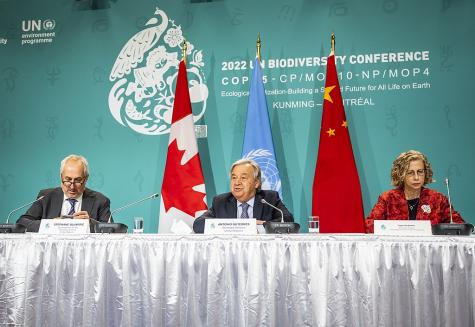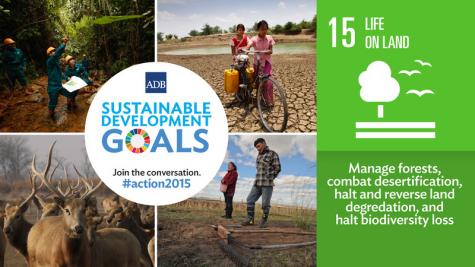UN Biodiversity Summits

➡️ UN Biodiversity Summits - Guide to the Nature COPs
Every two years world leaders come together for the Convention on Biological Diversity to address the double planetary crises of rapidly declining biodiversity and loss of nature (animal species and ecosystems). Our platform for the ➡️ UN Biodiversity Summits has everything you need to know on past and upcoming biodiversity summits, including this years COP16 in Cali, Colombia.
The logging industry, intensive farming practices, deforestation, irresponsible management, high-level corruption, pollution, climate change, wildfires, overdevelopment and a host of other man-made factors have led to the unsustainable exploitation of our planet's natural resources.
Humans quite literally need the natural world to survive. For freshwater, sustenance, healthy soil to grow crops, timber for construction, medicines, carbon storage, employment, the very air that we breathe. Not to mention the beauty, joy, and wealth of health benefits to be enjoyed from spending time in nature.
A recent report by the IPBES (intergovernmental body established to improve the interface between science and policy on issues of biodiversity and ecosystems) reveals that valuing nature solely for its market worth has contributed massively to the biodiversity crisis.
Issues regarding life on land have already been recognised in the Sustainable Development Goals. Goal 15 is concerned with forestry management, desertification, land degradation, and biodiversity loss. The biodiversity summits aim to compliment this goal, and broaden it to also include marine environments and other overlooked areas.
For German speakers please find even further reading here.

How Bad is the Biodiversity Crisis?
Since the beginning of industrialisation, plant and animal species have been dying off in numbers 1,000 times higher than the natural rate. Many scientists are now warning of a sixth mass extinction if significant action is not taken soon.
64% of the Earths rainforests are now gone. 2,400 trees are being cut down every minute. Species of plants, animals, and birds are being lost at a rate of 100 a day. 20,000 African elephants are killed by poachers and the illegal wildlife trade every year. Over 30,000 species are currently on the IUCN endangered red list.
These summits finally recognise the importance of preserving our natural world. If funding can be secured, used effectively, and all nations commit to their pledges, this could be the breakthrough that nature has been waiting for.
We have seen endangered animals come back from the brink, barren lands rewilded, and concrete jungles transformed into green havens. It can be done.
On the other hand, the biodiversity COPs receive a noticeable lack of media attention, political leadership, and involvement from celebrity activists who are normally outspoken, and raise the profile of such events. The nature COP seems to play second fiddle to the UN climate change summits.
We cannot solve the climate crisis, without also solving our nature crisis. The two go hand in hand. We must work together to ensure that both issues are addressed with equal importance and urgency.
As the executive director of the UNEP Inger Andersen said, ‘Now is our chance to shore up and strengthen the web of life, so it can carry the full weight of generations to come.’
Author: Rachael Mellor, 22.12.22 licensed under CC BY-ND 4.0 (updated 06.11.24)
For further reading on the UN Biodiversity Summits see below ⬇️